-


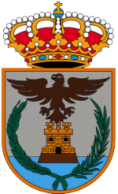
 Welcome To
Welcome To

-



 Welcome To
Welcome To

-



 Welcome To
Welcome To

-



 Welcome To
Welcome To

-



 Welcome To
Welcome To































Contact Águilas Tourist Office on +34 968 493 285
Send an Email
Click Here

Hello, and thank you for choosing CondadoToday.com to publicise your organisation’s info or event.
Condado Today is a website set up by Murcia Today specifically for residents of the urbanisation in Southwest Murcia, providing news and information on what’s happening in the local area, which is the largest English-speaking expat area in the Region of Murcia.
When submitting text to be included on Condado Today, please abide by the following guidelines so we can upload your article as swiftly as possible:
Send an email to editor@condadotoday.com or contact@murciatoday.com
Attach the information in a Word Document or Google Doc
Include all relevant points, including:
Who is the organisation running the event?
Where is it happening?
When?
How much does it cost?
Is it necessary to book beforehand, or can people just show up on the day?
…but try not to exceed 300 words
Also attach a photo to illustrate your article, no more than 100kb

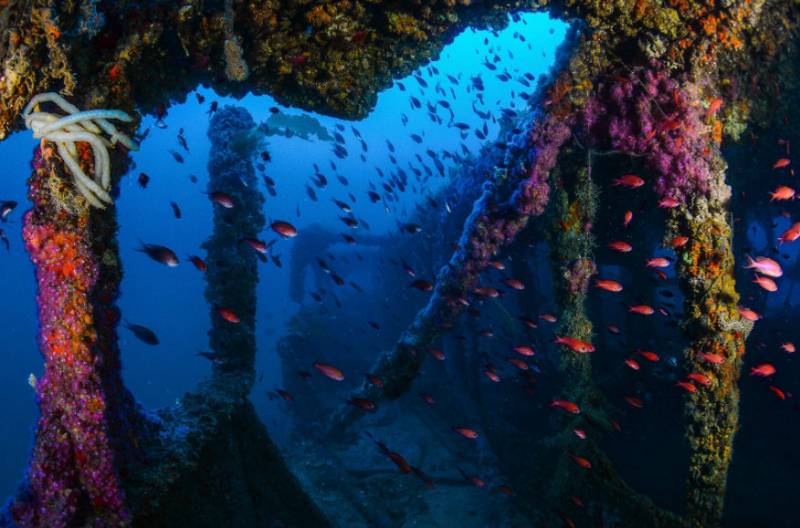 The Region of Murcia is well known for its warm climate and beautiful coastline, but hidden just a few metres below the surface of the sea are a range of underwater caves which are arguably more attractive but far less often seen!
The Region of Murcia is well known for its warm climate and beautiful coastline, but hidden just a few metres below the surface of the sea are a range of underwater caves which are arguably more attractive but far less often seen!
What this means for divers, be they beginners or highly proficient and experienced, is a variety of subaquatic adventures which are not only spectacular but also highly valued by scientists and marine biologists who are researching their origins and peculiar ecosystems. All of those mentioned below can be visited with guidance and supervision by professionals, and just like the sunken shipwrecks they are home to an extraordinary variety of marine environments and life, from colourful fish and crustaceans to large rock formations, illustrating the complexity of the Mediterranean ecosystem.
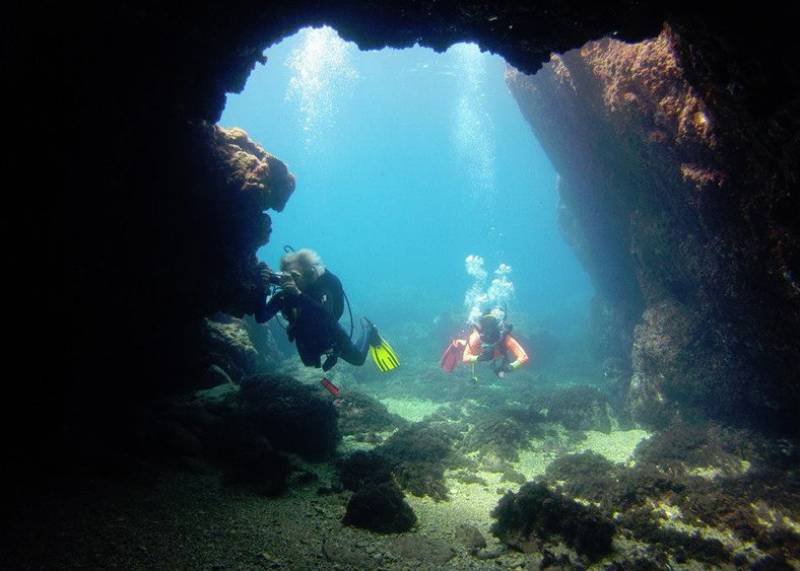 On the western side of the headland of Cabo Tiñoso is the Cueva del Lago, an incredible place for divers of all levels to discover as they see for themselves the species which live in or visit the cave – these can even include bottlenose dolphins if you’re in luck, as well as other sea mammals and sea turtles!
On the western side of the headland of Cabo Tiñoso is the Cueva del Lago, an incredible place for divers of all levels to discover as they see for themselves the species which live in or visit the cave – these can even include bottlenose dolphins if you’re in luck, as well as other sea mammals and sea turtles!
The cave is fairly easy to access at depths of between 3 and 12 metres, and leads to a hidden lake which is 70 metres long. The eroded rocks inside are white, brown and blue, and above the lake is a dome-shaped roof of 42,000 square metres, measuring 80 metres in length – one of the largest in the whole of the Region of Murcia!
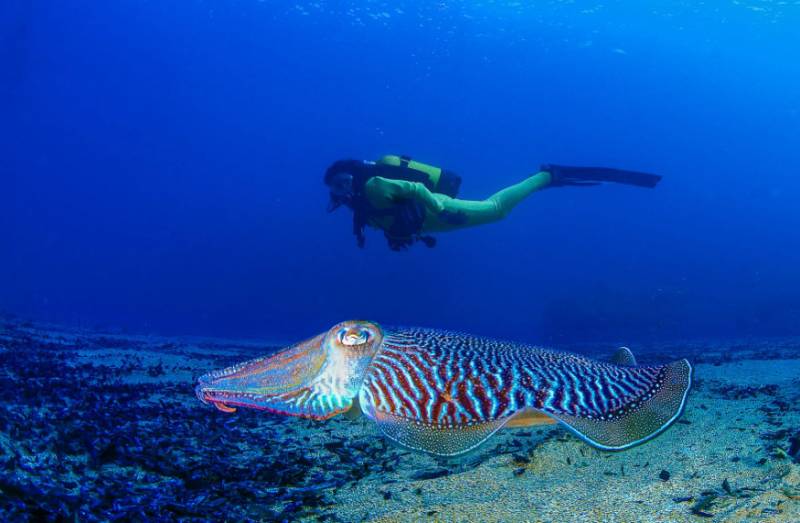 Cueva Neptuno is on the other side of Cabo Tiñoso and is one of the most visited underwater caves in the Costa Cálida. It is also known as the Cueva de la Virgen on account of a statue of the Virgin Mary which has been placed inside.
Cueva Neptuno is on the other side of Cabo Tiñoso and is one of the most visited underwater caves in the Costa Cálida. It is also known as the Cueva de la Virgen on account of a statue of the Virgin Mary which has been placed inside.
Again, it is easily accessed from Cala Aguilar, whether divers have travelled there on land or by boat, apart from a drop of 5 metres or so for which a rope is required in order to guarantee safety. The actual entrance is at a depth of 15 metres and on days when the sea is calm it is even possible to see the difference between the fresh water and seawater inside.
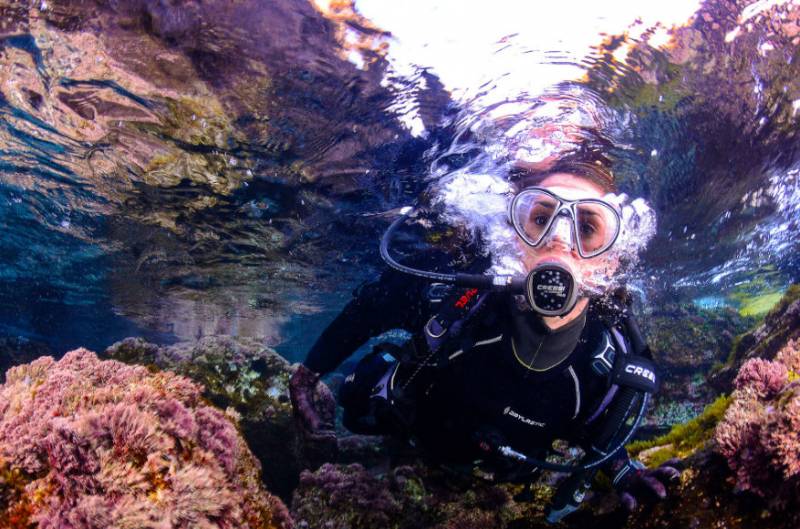 Between Cabo Tiñoso and Puerto de Mazarrón is the “Cueva del Agua”, a series of underwater caves, caverns and passageways which form part of the mountainous rock formation which on land becomes the Cabezo de Hornos. This is one of the longest hydrothermal networks in Spain but is recommended only for very experienced divers due to the risks of losing one’s way at depths as low as 34 metres beneath the entry alongside the main road through Isla Plana.
Between Cabo Tiñoso and Puerto de Mazarrón is the “Cueva del Agua”, a series of underwater caves, caverns and passageways which form part of the mountainous rock formation which on land becomes the Cabezo de Hornos. This is one of the longest hydrothermal networks in Spain but is recommended only for very experienced divers due to the risks of losing one’s way at depths as low as 34 metres beneath the entry alongside the main road through Isla Plana.
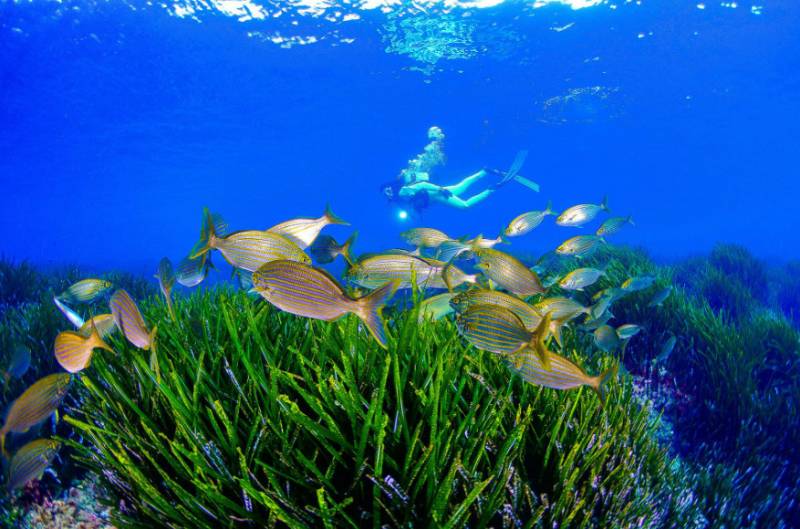 This is a simple cave to visit with practically no current to worry about, and inside is the tailplane of a small aircraft and two other wrecks, those of the “Ana María” and the “Nueva Mi Teresa”. Reaching a depth of 25 metres, it was featured in the film “La Carta Esférica”, based on the novel of the same name by Cartagena author Arturo Pérez Reverte.
This is a simple cave to visit with practically no current to worry about, and inside is the tailplane of a small aircraft and two other wrecks, those of the “Ana María” and the “Nueva Mi Teresa”. Reaching a depth of 25 metres, it was featured in the film “La Carta Esférica”, based on the novel of the same name by Cartagena author Arturo Pérez Reverte.
Click here for more information about dives in Águilas.
These, of course, are just four of the many unique diving experiences to be had along the coastlines of the Region of Murcia, where the rich wildlife and fascinating geological formations not only provide a stunning spectacle but also provide us with an important reminder of the importance of protecting and preserving their fragile ecosystems.
Source: ITREM